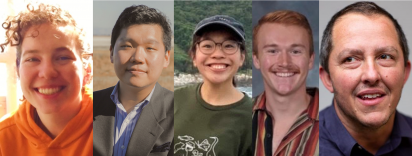
Transforming Restoration Science: Multiple Knowledges and Community Research Cogeneration in the Klamath and Duwamish Rivers
SMEA graduates Samantha Klein (’21), James Lee (’21), Sallie Lau (’20), and current SMEA student Bryce Lewis-Smith, along with SMEA Assistant Professor Cleo Wölfle-Hazard and accompanying authors recently published an article in The American Naturalist titled, “Transforming Restoration Science: Multiple Knowledges and Community Research Cogeneration in the Klamath and Duwamish Rivers [journals.uchicago.edu].”
Typical practices in restoration science can perpetuate exclusionary and oppressive paradigms in both ecosystem restoration and restoration policymaking.

SMEA at the PCSGA Annual Shellfish Conference
SMEA alums and faculty represented at the recent PCSGA Annual Shellfish Conference held this year in Wenatchee, Washington. In attendance were SMEA alums Jessi Florendo (’22), Kalloway Page (’21), Sam Klein (’21), and Emily Buckner (’20). SMEA Professor of Practice Yoshitaka Ota was a keynote speaker. “It was fun to be among good company in an unfamiliar place!” shared Florendo.
The PCSGA Annual Shellfish Conference is a convening of growers, natural resource managers, regulators, academics, and others involved in the regional shellfish industry to gather and discuss modern problems, scientific inquiry, and collaborative solutions to all nature of problems.
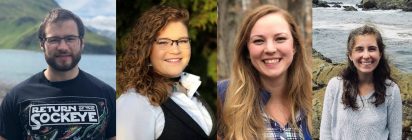
Congratulations to Sea Grant Felllows!
Congratulations to recent SMEA graduates Clay McKean, Caroline Potter, Kelsey Rudes and Jacquelyn Shaff on being selected as Sea Grant Fellows!
Clay McKean was one of thirteen early-career scientists and professionals to have been selected for the 2022–2023 class of Alaska Sea Grant State Fellows. The group comprises the largest fellowship cohort in the program’s history. The year-long paid fellowship matches soon-to-graduate or recently finished graduate students with hosts in Alaska-based state or federal agencies and nonprofits where they acquire on-the-job experience in marine science and policy positions.
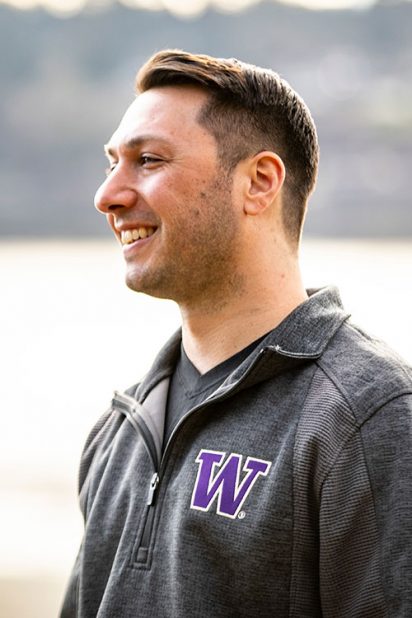
SMEA Alum’s path to preserving and improving the environment
SMEA Alum Bobbak Talebi is currently a senior coastal planner for the Washington State Department of Ecology. He and his wife Bridget Talebi are two of five UW alumni recently profiled for following their passion to make our planet’s environment healthier, more just and more resilient. As stated in Bobbak’s profile “With a love of the outdoors and a natural inclination toward public service, Talebi was drawn to environmental policy.”
Bobbak’s current role includes helping protect more than 3,000 miles of shoreline through the State Coastal Zone Management Program.
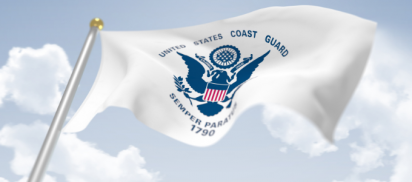
Historic Nomination for Adm. Fagan ’00
US Coast Guard Vice Commandant Admiral Linda Fagan ’00 was nominated to head the US Coast Guard, as announced by the Biden Administration on Tuesday, April 5th, 2022. Adm. Fagan would become the first woman to lead a branch of the US military.
Fagan is a graduate of the School of Marine and Environmental Affairs, completing a thesis entitled “Improving the quality of information in the marine transportation system: an exercise in risk reduction”.
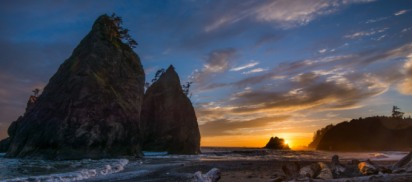
Trio of Alumni Lead Effort on WA Coastal Resilience
The Washington Coast Resilience Action Demonstration Project (RAD) was a two-year (2019-2021) partnership between the Washington State Department of Ecology and Washington Sea Grant that provided multi-organizational hazards assistance to communities on the Pacific Coast of Washington and laid the groundwork for future coastal resilience efforts. Bobbak Talebi ’15, Tressa Arbow ’19, and Henry Bell ’20 from the Washington State Department of Ecology, and Jackson Blalock with Washington Sea Grant spearheaded the development of this joint project.
Read more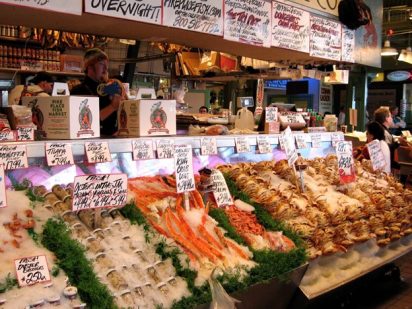
Flemma ’93 Pens Op-Ed on Russian Seafood Ban
School of Marine and Environmental Affairs alumna Jean Flemma ’93 recently co-authored an op-ed piece for the Seattle Times last week examining the effectiveness of a US ban on Russian seafood. As one of the most frequently globally traded food commodities, seafood is difficult to trace, and a ban on the sale of Russian seafood may prove ineffective. Read the full piece here: https://www.seattletimes.com/opinion/russian-seafood-ban-is-meaningless-without-real-traceability/
Read more
Misra ’20 and Prof. Miller Draft Manuscript
Thesis work on marine conservation tourism and public engagement programs with the Giant Pacific Octopus has evolved into an accepted article for the journal Regional Studies in Marine Science. SMEA alum Manjari Misra ’20 and her advisor Professor Marc Miller developed the draft following the completion of Misra’s thesis work. Misra reports, “this paper was regarding the marine conservation tourism programs at the Seattle Aquarium.
Read more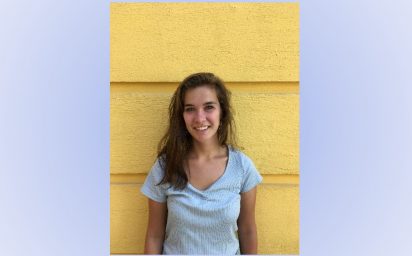
Keller ’21 Thesis Work Yields Peer-Reviewed Publication
SMEA alumna Abigail Keller ’21 recently published her thesis work in the journal of Ecological Applications. Her work as a SMEA student focused on utilizing eDNA data to detect the presence of the invasive European green crab in Puget Sound waters. Washington Sea Grant’s Crab Team was integral in providing comparative data from trapping efforts, and Keller’s faculty advisor SMEA Professor Ryan Kelly is listed as a co-author on the piece.
Read more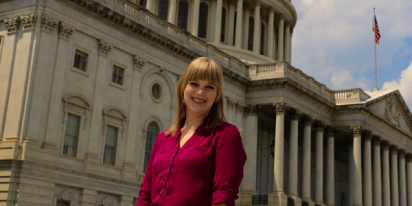
Knauss Fellow McKeown ’20 Shares Experience
SMEA alumna Megan McKeown ’20 shared her experience and a behind-the-scenes look at the legislative process for the Knauss Fellow Blog hosted by the NOAA Sea Grant website. McKeown has been serving as a marine policy fellow in DC working for the House Science Committee.
While studying at SMEA, McKeown authored the thesis “Carbon Trading & Environmental Equity: Evidence from the Regional Greenhouse Gas Initiative (2000 – 2019)”.